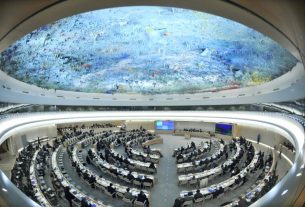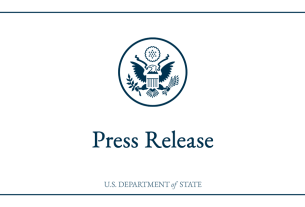From high-stakes diplomacy in Central Africa to intensifying conflicts and democratic defiance elsewhere, the African continent experienced a week of dramatic political shifts and humanitarian challenges. Below is a concise, fact-based briefing of the continent’s key developments.
Congo-Rwanda Draft Peace Deal Offers Hope Amid Rebel Chaos
In a notable diplomatic development, Rwanda and the Democratic Republic of Congo have submitted a joint draft peace proposal as part of a U.S.-mediated effort to de-escalate hostilities in the conflict-ridden east. U.S. President Donald Trump’s senior Africa adviser, Massad Boulos, announced via social media that the draft was “an important step” in resolving one of Africa’s most intractable crises.
This follows last month’s agreement—brokered by U.S. Secretary of State Marco Rubio—in which both nations pledged to pursue peace. Rwanda’s Foreign Minister Olivier J.P. Nduhungirehe told the Rwanda Broadcasting Agency that negotiations with his Congolese counterpart are planned for mid-May, with a formal signing by the presidents expected at the White House by June.
Yet, on the ground, civilians face continued hardship. According to Reuters, farmers returning to rebel-held areas in North and South Kivu face widespread destruction, landmines, and food insecurity. The UN’s International Organization for Migration reports over 1.8 million returns since January, despite 1.2 million people still displaced by conflict.
Port Sudan Targeted by Drone Strikes as War Escalates
In a severe escalation, Sudan Tribune reports that Port Sudan, the temporary seat of Sudan’s government, was struck for the third time in a week by drones allegedly operated by the Rapid Support Forces (RSF). Key infrastructure, including oil depots and the city’s airport, was targeted, causing fires and widespread panic.
These attacks highlight the growing military assertiveness of the RSF amid Sudan’s deepening internal conflict. Meanwhile, Sudan suffered a diplomatic blow at The Hague, where the International Court of Justice (ICJ) dismissed its genocide case against the United Arab Emirates for allegedly aiding the RSF. The court ruled it lacked jurisdiction due to the UAE’s reservation on the Genocide Convention’s dispute clause. (Sudan Tribune)
Hospital Bombing and Political Crackdown Shake South Sudan
In South Sudan, a UN panel condemned the aerial bombing of an MSF hospital in Old Fangak, calling it a possible war crime. The Radio Tamazuj report states the attack destroyed the only major health facility serving over 40,000 people, compounding an already severe humanitarian crisis.
Simultaneously, South Sudan’s fragile peace process appears under renewed strain. A delegation from the African Union Commission and IGAD met with President Salva Kiir in Juba, but were denied access to detained First Vice President Riek Machar. His continued detention, as reported by Radio Tamazuj, is seen as a serious threat to the implementation of the 2018 peace deal.
Mali’s Pro-Democracy Movement Re-Emerges
In a rare display of defiance, hundreds of Malian citizens staged Bamako’s first pro-democracy rally in years. Demonstrators protested a bill proposed by the transitional military government that seeks to dissolve political parties, sparking fears of deepened authoritarianism.
Civil society leaders and opposition figures called for a “credible return to constitutional order” through democratic elections. The event, as reported by the Associated Press, marks a pivotal moment in Mali’s struggle to restore civilian rule following its recent coups.
Banditry Claims Lives in Nigeria’s Troubled Northeast
At least 19 people were killed in a bandit ambush in Bauchi State, Nigeria. According to Reuters, the attackers overwhelmed a local vigilante unit in Gwana district, stole livestock, and killed residents. Armed groups known locally as bandits have ravaged Nigeria’s north in recent years, with escalating violence displacing thousands and stalling agricultural activity.
Opposition Under Siege in Uganda Ahead of 2026 Elections
Uganda’s political tensions deepened this week as opposition leader Bobi Wine reported a military raid on his party headquarters, just days after his bodyguard Eddie Mutwe was allegedly detained and tortured.
BBC reports that Mutwe, whose legal name is Edward Sebuufu, appeared in court visibly injured, having reportedly endured beatings and electrocution. His lawyer, Magellan Kazibwe, told Daily Monitor the abuse was severe. Meanwhile, rights groups warn of systematic repression as President Yoweri Museveni seeks to extend his rule beyond 40 years in power.
The U.S.-based Holocaust Memorial Museum recently issued a rare warning about the potential for mass atrocities during Uganda’s 2026 election cycle.
Libya Inches Toward Electoral Reform, But Distrust Remains
In Libya, the UN Mission’s advisory committee finalized a set of proposals aimed at resolving disputes around electoral eligibility and political transition. Talks with Libyan actors are expected to begin shortly. However, as Reuters notes, public skepticism runs deep, with many citizens doubting their leaders’ sincerity about holding genuine elections.
Ethiopia and Iran Sign Rare Security Pact
Ethiopia and Iran signed a memorandum of understanding to bolster police cooperation, intelligence sharing, and capacity building. The agreement, signed in Addis Ababa by police chiefs Demelash Gebremichael and Ahmad Reza Radan, was announced by Ethiopia’s Federal Police and reported by Addis Standard. The pact marks a rare alignment between the two countries in the security sector.
Burundi Installs New Rights Commission to Counter UN Criticism
Burundi’s National Assembly has appointed a new human rights commission following the exile of its previous leader, Sixte Vigny Nimuraba, who had exposed widespread violations. According to AFP, Assembly President Gelase Daniel Ndabirabe openly tasked the new commission with “fighting” the UN’s Special Rapporteur on Burundi, Fortune Gaetan Zongo, whose August 2024 report documented enforced disappearances and unchecked repression.
The move signals a hardline stance against international accountability as Burundi tightens its grip on civil society and dissenting voices.
Conclusion: A Continent at a Crossroads
This week’s events paint a complex picture of Africa—where peace initiatives coexist with violence, and democratic aspirations clash with authoritarian resistance. From Central Africa’s fragile negotiations to Mali’s street protests and Uganda’s pre-election turmoil, the continent remains deeply in flux.
As regional and global actors engage in diplomacy and development, the need for sustainable governance, security, and human rights protections remains urgent and unresolved.
Sources:
Associated Press, Reuters, BBC, Sudan Tribune, Radio Tamazuj, AFP, Addis Standard. All interviews and statements are properly attributed to the original reporting outlets.



